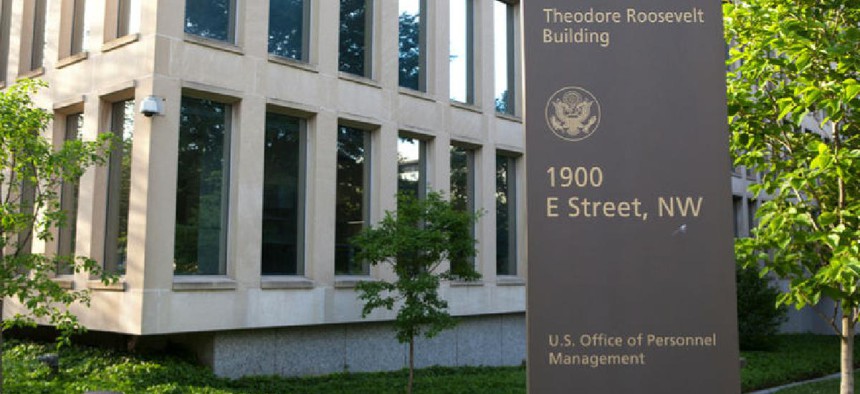Senators drill in on OPM-GSA reorg at confirmation hearing

Senators questioned President Donald Trump's pick to lead the Office of Personnel Management about workforce issues including a planned reorg that would divide OPM's functions between the White House and the General Services Administration.

President Donald Trump's picks to head the government's central personnel and procurement agencies faced their first hurdle in obtaining Senate confirmation.
Dale Cabaniss and Michael Wooten, the nominees to head the Office of Personnel Management and the Office of Federal Procurement Policy respectively, testified about their priorities and issues facing each agency before the Senate Homeland Security and Government Affairs Committee May 7.
If confirmed, Cabaniss would take over OPM as the White House is proposing eliminating the agency altogether and shifting its core functions elsewhere. In its reorganization plan last summer, the administration proposed merging OPM and the General Services Administration, an effort renewed in its fiscal year 2020 budget request.
She would replace OPM acting Director Margaret Weichert, who has been heading the agency since the departure of Jeff Tien Han Pon last October.
Sen. Gary Peters (D-Mich.) pointed out Congress still has not received "basic information" about the agencies' merger including cost, implementation timelines, expected impact on the federal workforce, as well as what legislation would be needed to carry out the plan.
Cabaniss testified that while her personal knowledge of the reorganization details was limited, the President's Management Agenda "envisions the need for legislation."
"You've got to get all the information you need," she said. "The only way to get legislation to be able to effectuate this change is to work with Congress."
In addition to facing a skeptical Senate, the reorganization proposal faces a House majority that's opposed to the merger.
Senators also questioned how Cabaniss would work with federal employees and unions as the Trump administration has proposed steep cuts to civilian agency budgets and retirement benefits, has tried to make it easier to fire feds and has targeted collective bargaining agreements and union time as a matter of policy.
Cabaniss said that the "paramount role of the [OPM director] job is to protect the civil service and merit principles and retirees."
Senators also questioned Cabaniss over the state of IT and cybersecurity at OPM in the aftermath of the infamous breach that exposed millions of personnel records as well as how the agency should support the recruitment of tech personnel.
Cabaniss said she supported a rotational cyber program that would allow federal employees to more easily work at different agencies, citing the tech groups stood up during the Obama administration as a model for recruitment. She also said she was "really interested in talking" to industry and Obama-era federal CIOs "to figure out how they can convince people to work in the federal government."
Cabaniss' background includes serving as the chair of the Federal Labor Relations Authority during the George W. Bush administration and as Republican committee staff director in Congress.
The American Federation of Government Employees, the largest federal union, sent the committee a letter opposing Cabaniss' confirmation.
Cabaniss "neither supports the mission of OPM nor possesses the appropriate experience to lead this important agency," AFGE Legislative Director Alethea Predeoux said in the letter.
OFPP pick
Wooten called cybersecurity vulnerabilities "one of the most concerning" issues facing the United States. He said one of his priorities, if confirmed to head OFPP, would be to work with industry on tech solutions.
If confirmed, Wooten would be the first permanent administrator of the Office of Federal Procurement Policy since September 2016.


